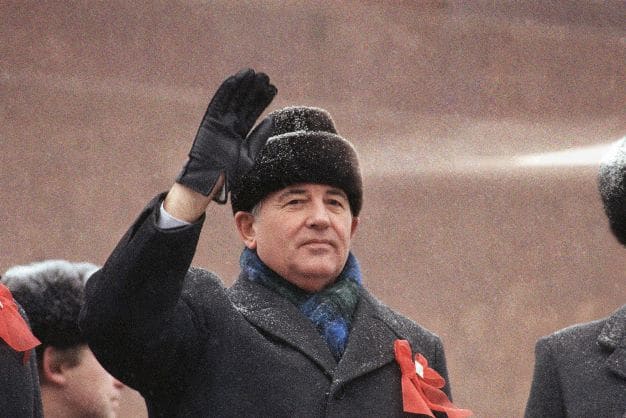
by Nelson Graves | 1 Sep 2022 | Educators' Catalog, Eyewitness, Politics, World
Alternately revered and vilified, Mikhail Gorbachev shaped history as the last Soviet leader. Our correspondents recall his impact and legacy. Soviet President Mikhail Gorbachev waves during a military parade marking the anniversary of the Bolshevik revolution, Red...
At a time of sharp division between the West and Russia, News Decoder remembers an era when another intractable divide was bridged. At the height of the Cold War, two adversaries, U.S. President Ronald Reagan and Soviet leader Mikhail Gorbachev, forged an agreement to reduce nuclear arms. Alternately revered and vilified, Gorbachev shaped history as the last Soviet leader and the one whose decisions helped lift the Iron Curtain. To mark Gorbachev’s death, News Decoder correspondents who covered the collapse of the Soviet Union examine how the former Soviet leader’s legacy has evolved over time.
Exercise: Gorbachev left an ambiguous legacy. He is heralded in much of the West but viewed less favorably in Russia. Can your student’s identify other historical or contemporary figures who are viewed in a contradictory way? What’s at the root of such contradictory perspectives?
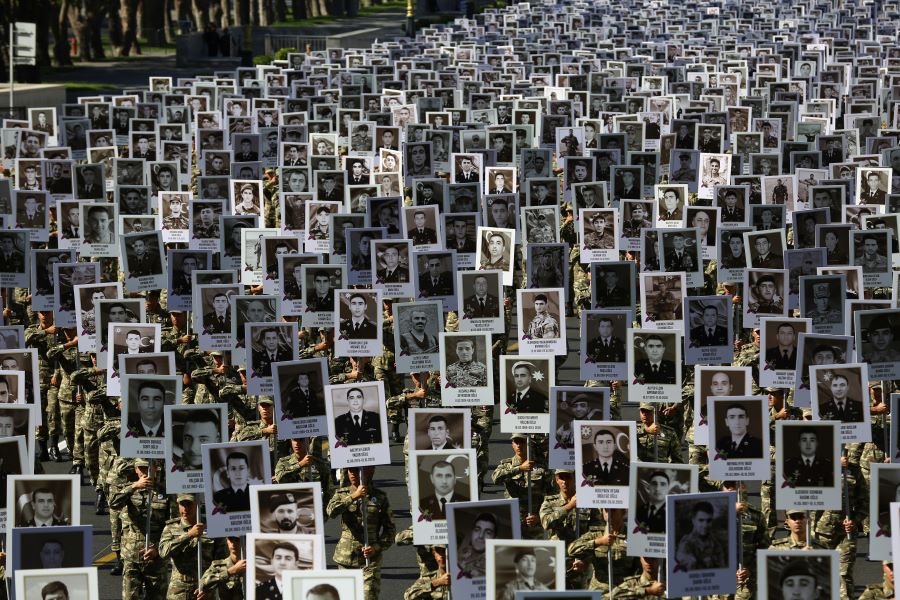
by Bryson Hull | 9 Aug 2022 | Conflict, Decoders, Educators' Catalog, Politics, World
A conflict between Armenia and Azerbaijan is heating up as the war in Ukraine prompts geopolitical realignments, with implications for outside powers including the West and Russia. Azerbaijani soldiers carry portraits of soldiers killed during fighting over...
“It is easy to pay little attention or to even ignore regional conflicts, but they can hold the key to understanding larger political currents in the world.” Correspondent Bryson Hull’s words remind us of why a simmering conflict in the Caucuses between Armenia and Azerbaijan has potential implications for all of us. News Decoder is premised on the notion that young people know a great deal, through headlines on their screens, about what is happening in the world but, because they are young, can have difficulty connecting the dots and understanding why far-away events matter to them. Hull offers a clear explanation of why fighting over Nagorno-Karabakh appears periodically in those headlines, and then disappears, only to reappear some day, like so many other intractable conflicts in distant places.
Exercise: Ask your students to identify a regional conflict that became a proxy for armed competition involving stronger powers.
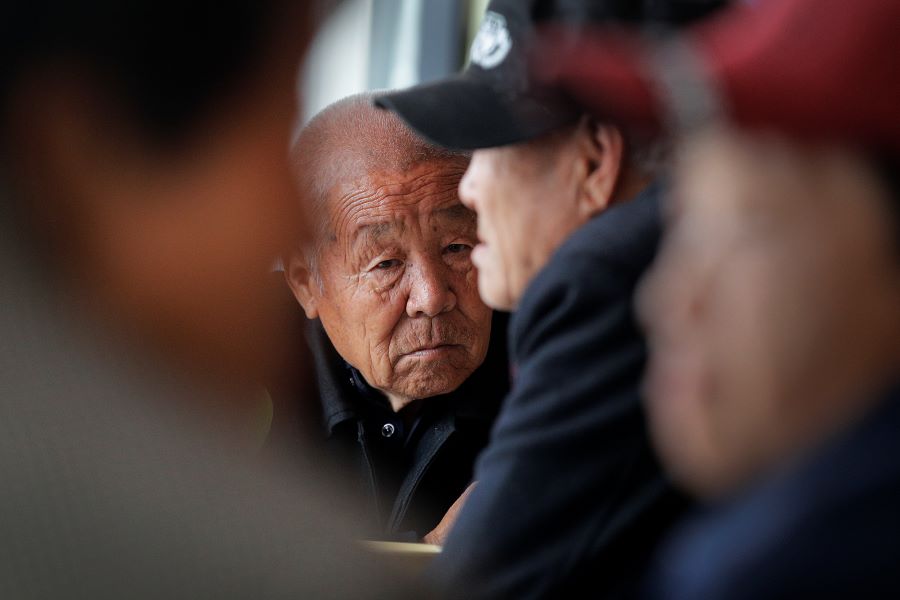
by John West | 24 Jun 2022 | Economy, Future of Democracy, Human Rights, Politics, World
Many have predicted this would be the ‘Asian Century.’ But the world is increasingly fractured as we enter a new “Cold War.” Elderly wait for a free vegetarian lunch in Dingxing, southwest of Beijing, China, 13 May 2021. (AP Photo/Andy Wong) For some...
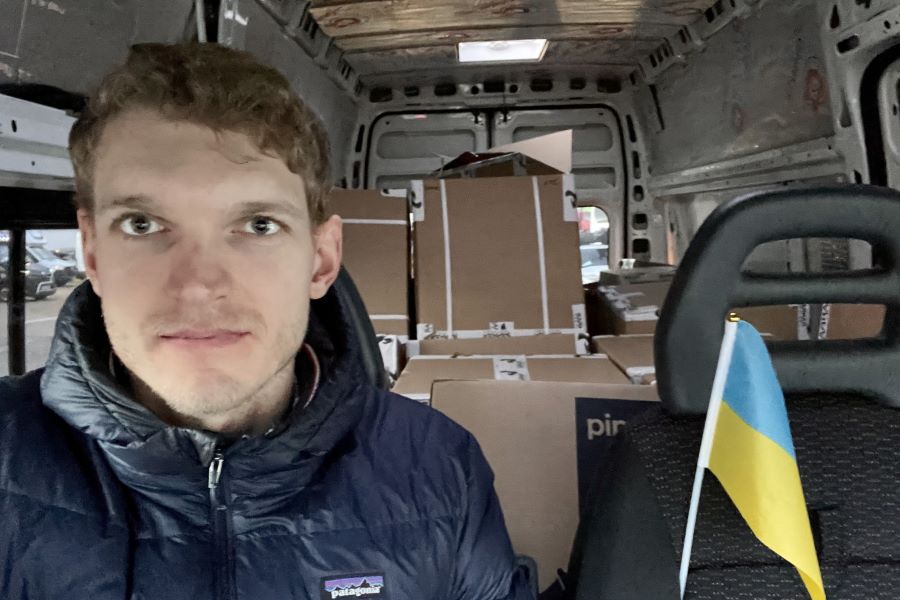
by Jeffrey Mo | 20 Jun 2022 | Conflict, Educators' Catalog, Ukraine, University of Toronto Journalism Fellows
Dmytro Shelukhin is a Ukrainian working for a UK investment bank. But like many émigrés, he is finding meaning helping his home nation fight Russia. Dmytro Shelukhin on the way to Ukraine with war materiel (photo courtesy of Dmytro Shelukhin) For the past eight years,...
Like many big global news stories, the war in Ukraine has released a tsunami of ink, making it difficult for journalists to find a fresh angle. Jeffrey Mo, a fellow at the University of Toronto, manages to break new ground with a simple story about a Ukrainian émigré who sends war matériel to armed forces in his embattled home country. Mo lets Dmytro Shelukhin, a Ukrainian working for a UK investment bank, be the protagonist of the story, which discreetly underscores both the high stakes involved in the conflict and the depth of Ukrainian defiance.
Exercise: Ask your students to identify an issue dominating the news around the world – such as climate change or human rights – and to find a local angle. Then they should interview someone directly involved in the local matter and write a story capturing that person’s experiences and thoughts.
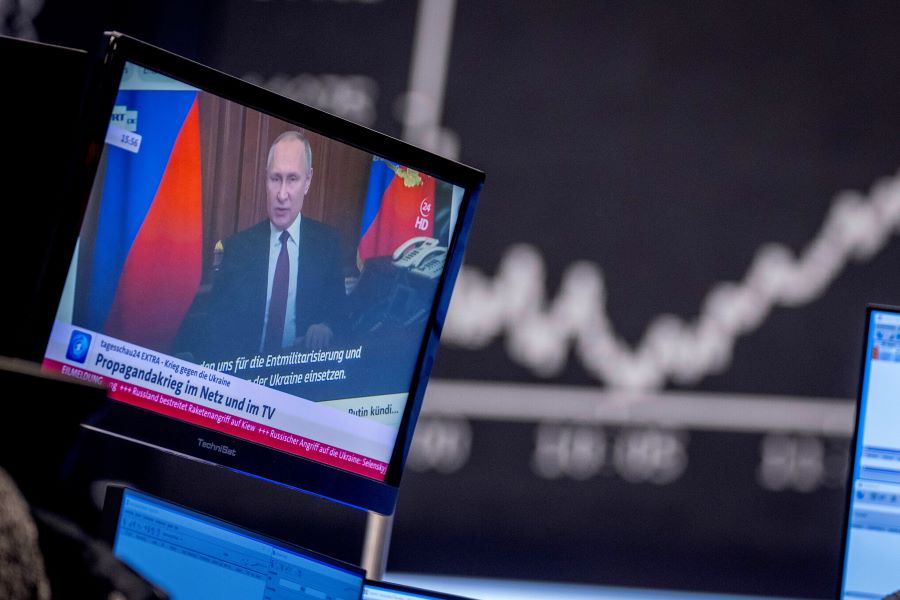
by Alexander Nicoll | 13 Jun 2022 | Conflict, Fake News, Future of Democracy, Media Literacy, Ukraine
How we perceive events like the war in Ukraine depends on our news sources. While never perfect, news media perform invaluable services. Russian President Vladimir Putin appears on a television screen at the stock market in Frankfurt, Germany, 25 February 2022....





